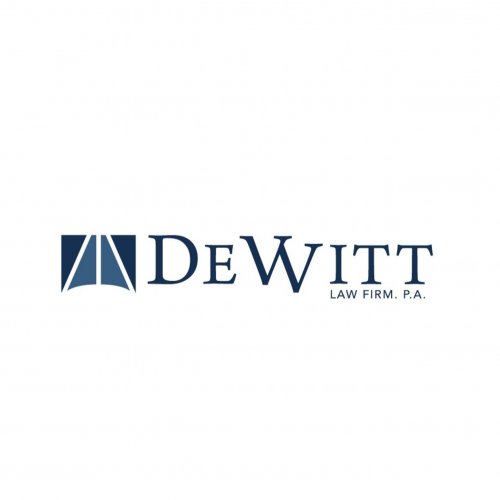Best Foreclosure Lawyers in Tampa
Share your needs with us, get contacted by law firms.
Free. Takes 2 min.
Free Guide to Hiring a Real Estate Lawyer
List of the best lawyers in Tampa, United States
About Foreclosure Law in Tampa, United States
Foreclosure law in Tampa comes into play when a borrower defaults on their mortgage payments, giving the lender the legal right to sell the borrower's property to recover the loan. Foreclosure typically starts after a borrower fails to make mortgage payments for 120 days. In Florida, including Tampa, both judicial and non-judicial foreclosure processes are used, but the judicial foreclosure process is more common.
Why You May Need a Lawyer
Dealing with a foreclosure can be a complicated and stressful situation. A lawyer can help you understand your rights and options, negotiate with your lender, and potentially save your home. If you have been served with a foreclosure lawsuit, a lawyer can represent you in court and ensure that your voice is heard. They can also review your loan documents to check for any errors that might provide a valid defense to the foreclosure.
Local Laws Overview
In Florida, foreclosures are typically judicial, which means the lender must sue in state court. Once you’re late 120 days, the lender sends a notice known as 'breach letter,' informing that a foreclosure is imminent. If the borrower does not pay the past-due amount, the lender will file a lawsuit. Further, Tampa laws also have a 'right of redemption,' which means you can get the property back even after foreclosure if you repay all the debts before the property is sold.
Frequently Asked Questions
What is the process of foreclosure in Tampa?
The foreclosure process begins when you default on one or more of your mortgage payments. After multiple attempts by the lender to collect, they will issue a notice of default and intent to sell your property at a public auction. If the loan is not paid within a specific period after the notice, the property will be sold.
How long does the foreclosure process take in Tampa?
The length of the foreclosure process in Tampa varies, but on average, it might take around six months to a year from the first missed payment until the property is sold at a foreclosure sale.
Does Tampa have any protection for homeowners facing foreclosure?
Yes, Florida law provides various provisions to protect homeowners, including the rights to receive notice of the foreclosure, to cure the default, and to be offered loss mitigation options.
Can I stop the foreclosure process?
Yes. Foreclosure can be stalled or stopped by various means, such as reinstating the loan, redemption, or filing for bankruptcy. However, each method has its own set of requirements and is best explored with the help of an attorney.
What happens after foreclosure in Tampa?
After a foreclosure sale, the borrower has what's known as a 'legal right of redemption.' That means you can reclaim your home if you can pay off your outstanding mortgage debt before the foreclosure sale.
Additional Resources
You might find the following resources helpful in understanding foreclosure laws in Tampa:
- Florida Attorney General's Office: Provides information and resources about foreclosure
- U.S. Department of Housing and Urban Development (HUD): Offers information on foreclosure laws and prevention counseling
- The Florida Bar Association: Offers a lawyer referral service and educational materials for the public.
Next Steps
If you're facing foreclosure, consider seeking legal help immediately. Contact a local foreclosure attorney to discuss your situation and explore your options. Save all documents related to your mortgage and foreclosure, attend all court hearings, and follow your attorney’s advice to protect your interests. Also, consider reaching out to a HUD-approved housing counselor for assistance with foreclosure prevention options.
Lawzana helps you find the best lawyers and law firms in Tampa through a curated and pre-screened list of qualified legal professionals. Our platform offers rankings and detailed profiles of attorneys and law firms, allowing you to compare based on practice areas, including Foreclosure, experience, and client feedback.
Each profile includes a description of the firm's areas of practice, client reviews, team members and partners, year of establishment, spoken languages, office locations, contact information, social media presence, and any published articles or resources. Most firms on our platform speak English and are experienced in both local and international legal matters.
Get a quote from top-rated law firms in Tampa, United States — quickly, securely, and without unnecessary hassle.
Disclaimer:
The information provided on this page is for general informational purposes only and does not constitute legal advice. While we strive to ensure the accuracy and relevance of the content, legal information may change over time, and interpretations of the law can vary. You should always consult with a qualified legal professional for advice specific to your situation.
We disclaim all liability for actions taken or not taken based on the content of this page. If you believe any information is incorrect or outdated, please contact us, and we will review and update it where appropriate.










